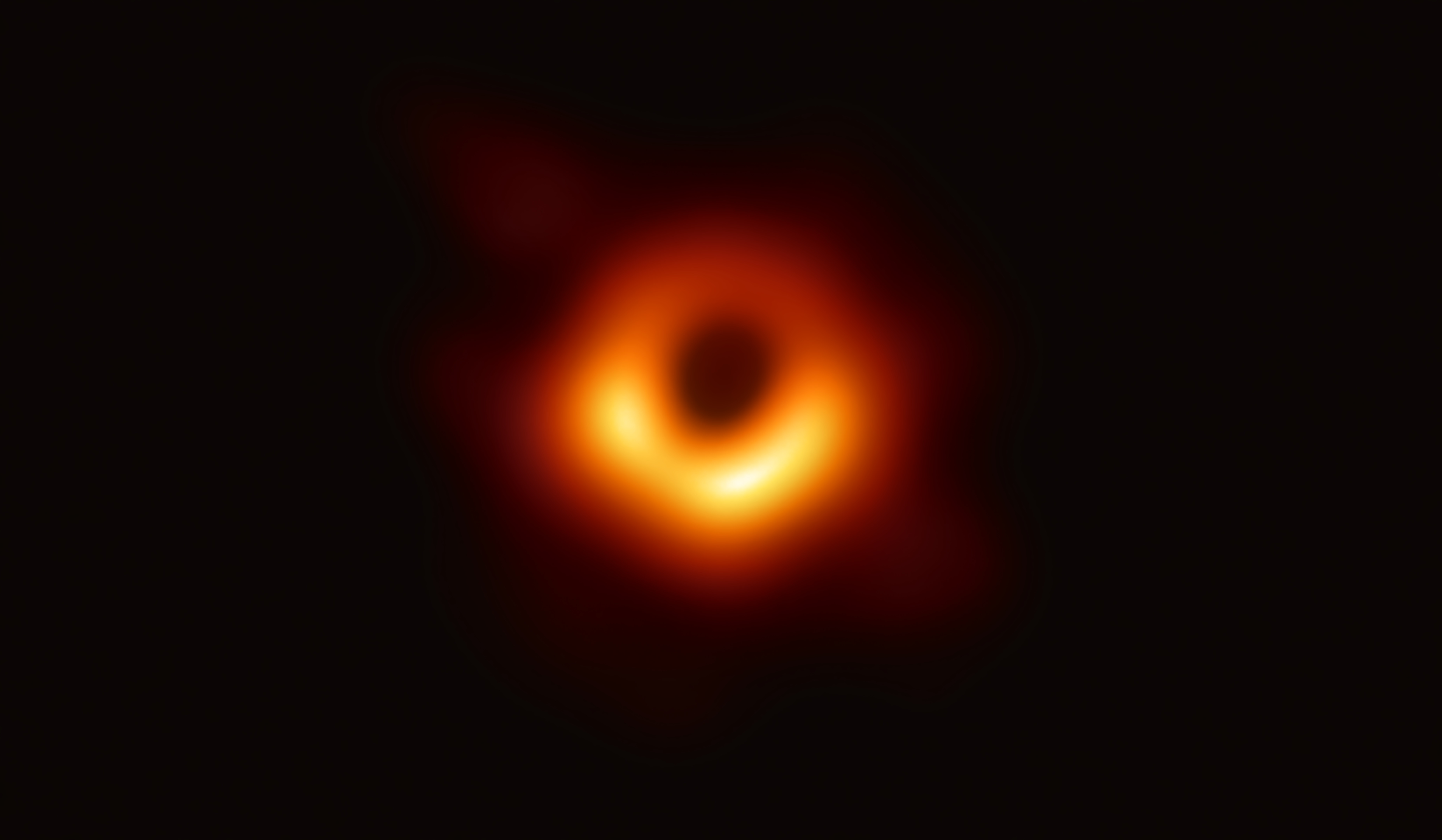

The Event Horizon Telescope (EHT) — a planet-scale array of eight ground-based radio telescopes forged through international collaboration — was designed to capture images of a black hole. In coordinated press conferences across the globe, EHT researchers revealed that they succeeded, unveiling the first direct visual evidence of the supermassive black hole in the centre of Messier 87 and its shadow. The shadow of a black hole seen here is the closest we can come to an image of the black hole itself, a completely dark object from which light cannot escape. The black hole’s boundary — the event horizon from which the EHT takes its name — is around 2.5 times smaller than the shadow it casts and measures just under 40 billion km across. While this may sound large, this ring is only about 40 microarcseconds across — equivalent to measuring the length of a credit card on the surface of the Moon. Although the telescopes making up the EHT are not physically connected, they are able to synchronize their recorded data with atomic clocks — hydrogen masers — which precisely time their observations. These observations were collected at a wavelength of 1.3 mm during a 2017 global campaign. Each telescope of the EHT produced enormous amounts of data – roughly 350 terabytes per day – which was stored on high-performance helium-filled hard drives. These data were flown to highly specialised supercomputers — known as correlators — at the Max Planck Institute for Radio Astronomy and MIT Haystack Observatory to be combined. They were then painstakingly converted into an image using novel computational tools developed by the collaboration. Credit: Event Horizon Telescope Collaboration
In this series we are exploring the weird and wonderful world of astronomy jargon! You won’t ever stop reading about today’s topic: event horizons!
An event horizon is the ultimate wall. It’s a boundary that separates one region of the universe from another. This separation is so complete that with event horizons it becomes utterly impossible for events on one side of the boundary to ever interact with or influence anything on the other side.
Event horizons appear in two situations in astronomy. The first is in cosmology and the expansion of the universe. Since the universe expands at a constant rate, that means that more distant objects appear to recede faster and faster away from us. At some distance, that recession exceeds the speed of light. This is not big deal, by the way, since the speed of light limitations in special relativity only apply to measurements of nearby objects.
This creates an event horizon. If an extremely distant galaxy emits light right now, that light will never reach us, because the light can’t overcome the expansion of the universe. We can still see the galaxy, at least for awhile, because we are looking at light emitted when the galaxy was closer to us. So we are completely and totally separated from that galaxy. Whatever’s going on there, we’ll never know about it, and any aliens living there will never know about us.
The other situation that creates event horizons is black holes. When matter collapses into too small a volume, nothing can prevent a catastrophic gravitational collapse that pulls that matter into an infinitely tiny point, called a singularity. The gravity of that singularity is exceptionally strong, so much so that if you get too close to it the singularity will pull you in faster than the speed of light.
Once again, that creates an event horizon. Every black hole has one, and it’s the boundary where gravity becomes too strong to overcome. If you were to fall beyond the event horizon, you can still be influenced by events outside the black hole, because the light can follow you in afterwards, but you cannot influence anything in the outside world. You’re cut off, forever trapped inside the black hole.
Revelations from the past can seem quaint once we've been living with them for a…
Burrowing under soil opens up a whole new world, especially when that soil is on…
Quasars are the actively feeding supermassive black holes at the hearts of galaxies and can…
This Hubble image shows a supernova named SN 2022aajn in a distant galaxy about 600…
It seems everyone is talking about the Moon and everyone wants to get their foot…
We can't help ourselves but wonder about life elsewhere in the Universe. Any hint of…